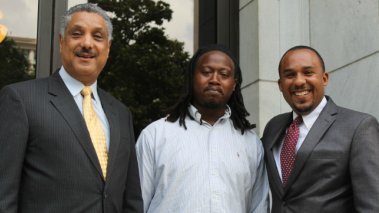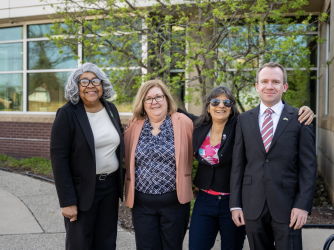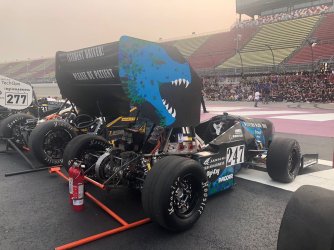Table of Contents
Supreme Court Declines to Hear Appeal of High School Student Disciplined for Rap Song

In a disappointing development, the Supreme Court of the United States today declined to hear an appeal from the 2015 decision of the U.S. Court of Appeals for the Fifth Circuit in Bell v. Itawamba County School Board. The Court’s denial of student Taylor Bell’s petition for certiorari leaves the Fifth Circuit’s en banc ruling in place and fails to address growing confusion in the lower courts regarding the scope of a school’s disciplinary authority over student speech outside the schoolhouse gates.
Bell sued his high school for violating his First Amendment rights after he was suspended for lyrics in a rap song that he wrote, recorded, and posted to social media outside of school hours and grounds. The lyrics, which referenced allegations of sexual misconduct by two school coaches, included profanity and lines that the school board deemed to be “threatening, harassing, and intimidating language.”
As we explained in greater detail on The Torch last year, the Fifth Circuit held that Bell’s off-campus posts could be punished by his school under the standard applied to student speech in Tinker v. Des Moines Independent Community School District, 393 U.S. 503 (1969). Generally speaking, Tinker permits administrators to punish speech that materially and substantially disrupts school operations or when administrators could reasonably forecast such a disruption.
When Bell asked the Supreme Court to hear his appeal, FIRE joined with the Student Press Law Center (SPLC) to file an amicus brief urging the Court to review his case. We argued that Tinker should not apply to speech such as Bell’s, which was created and communicated completely off campus. Applying Tinker to Bell’s song and similar expression allows school administrators to effectively assert 24/7 disciplinary authority over students and their online speech with little discernible or predictable limitation.
By refusing to hear Bell’s case, the Supreme Court continues to forego the opportunity to provide clarity in this evolving area of student speech rights. As SPLC explained earlier today:
Lower courts have been divided on whether the Tinker standard applies to off-campus speech. This marks the third time the Supreme Court had dodged a chance to clarify the law of online student speech.
In 2011, the Third Circuit came down in favor of a Pennsylvania student who was suspended for 10 days for creating a parody profile of her principal, since the school district could not provide adequate proof that the profile disrupted school activities—but the judges couldn’t agree whether Tinker was the proper level of school authority for students’ speech outside of school. Also in 2011, the Fourth Circuit ruled in favor of a West Virginia school district that punished a student who created a MySpace page where students posted vulgar and offensive comments about another student—despite the page operating off campus without using school resources. In both cases, the Supreme Court declined the petitions for review.
While Tinker and Bell both concern high school student speech, college students should keep an eye out for encroachments on their own speech rights. Not only have colleges and universities demonstrated an alarming willingness to punish students for social media posts, but courts have shown a willingness to conflate the abridged on-campus First Amendment rights of K–12 students with those of adult college students.
Recent Articles
FIRE’s award-winning Newsdesk covers the free speech news you need to stay informed.

VICTORY: Michigan town declares Sept. 6 ‘First Amendment Day’ after FIRE sues its mayor for shouting down residents

USC canceling valedictorian’s commencement speech looks like calculated censorship

Back into the FIRE: Hasen’s response to FIRE and Rohde: Don’t read the press clause out of the Constitution — First Amendment News 420
